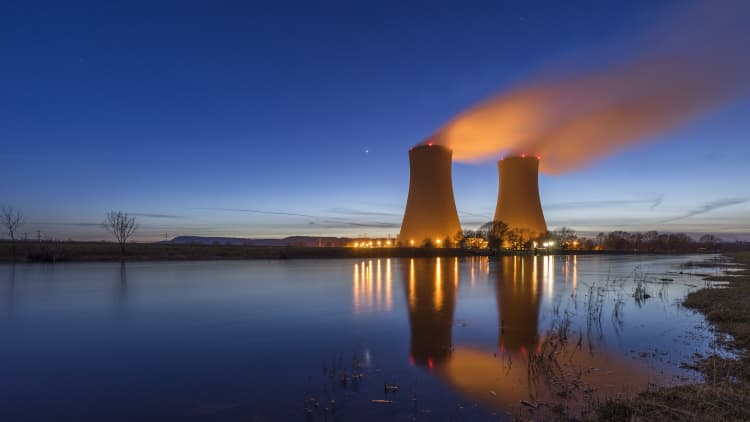China on Thursday suspended the import of all aquatic products from Japan, including edible seafood, hours after its neighbor started releasing treated radioactive water from the stricken Fukushima nuclear power plant.
Seafood exports from Japan to China include red sea bream, scallops, and mackerel, according to Japan's Ministry of Agriculture, Forestry and Fisheries. China is also Japan's largest importer of fish, bringing in 71.7 billion yen ($493.4 million) of fish in 2022 and 53.56 billion yen worth of crustaceans and mollusks, like crabs and scallops.
The discharge of the treated water was expected to start after 1 p.m. Toyko time, according to media reports citing state owned electricity firm TEPCO.
China's customs agency said in a statement that this was to "comprehensively prevent the risk of radioactive contamination of food safety, protect the health of Chinese consumers, and ensure the safety of imported food," according to a Google translation.
The move extends an earlier ban on imports from the areas immediately surrounding the nuclear plant.
The International Atomic Energy Agency said Thursday that it will have a team present to monitor the discharge and assess Japan's application of all relevant international safety standards.
The IAEA will have a presence on site "for as long as the treated water is released, in line with Director General Grossi's commitment for the IAEA to engage with Japan on the discharge of ALPS treated water before, during, and after the treated water discharges occur."
ALPS refers to the Advanced Liquid Processing System that at Fukushima, which removes radioactive material from the wastewater before it is released.
The only radioactive element that cannot be easily removed from water is tritium, and a spokesperson for Japan's Embassy in London said that the water to be discharged is "sufficiently purified through ALPS until the concentration of radioactive materials other than tritium is below the regulatory standard, and then is further diluted before it is discharged."

On Tuesday, Japanese Prime Minister Fumio Kishida said the country plans to discharge roughly 1.3 million metric tons of treated wastewater — enough to fill about 500 Olympic-sized swimming pools — from Fukushima. A massive earthquake and tsunami in March 2011 destroyed the nuclear power plant, which is situated on Japan's east coast.
China responded furiously, with Foreign Ministry Spokesperson Wang Wenbin on Tuesday accusing Tokyo of being "extremely selfish and irresponsible" by pressing ahead with the disposal of the water, adding that the ocean should be treated as a common good for humanity "not a sewer for Japan's nuclear-contaminated water."
Hong Kong also announced import curbs on some Japanese food products Tuesday, with the city's Chief Executive John Lee saying he strongly opposes the wastewater discharge.
The IAEA said in early July that Tokyo's plans were consistent with international standards and will have a "negligible" impact on people and the environment.
South Korea said last week it respected the IAEA's report and that its own analysis had found the release will not have "any meaningful impact" on its waters, although it added in a statement that it "does not necessarily agree with or support the plan to release contaminated water."
— CNBC's Sam Meredith contributed to this report.


